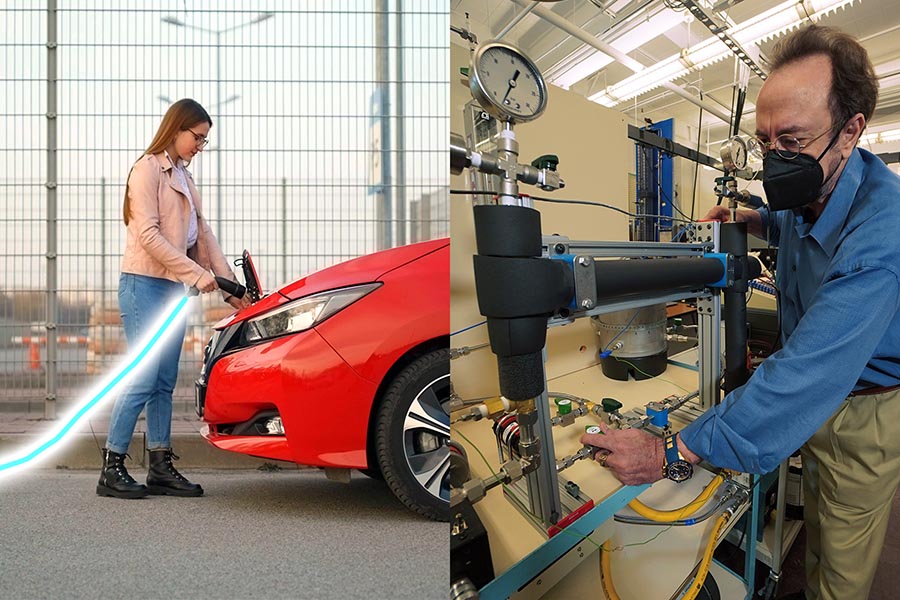Join the fast-charging revolution: new research center to focus on electric vehicle charging and thermal management
It began with research into the cables used to charge electric cars, which can only carry so much current due to overheating. Together with Ford Motor Company, Mudawar demonstrated a new cooling technique based on flow boiling, which could potentially carry five times more amperage than any other cable currently being used. This made headlines on ABC News, US News and World Report, Popular Science, Fast Company, Detroit Free Press, and many other media outlets.
 Now Mudawar is expanding the project into a new research center, established under the School of Mechanical Engineering, called EVeCTherm: Electric Vehicle Charging and Thermal Management.
Now Mudawar is expanding the project into a new research center, established under the School of Mechanical Engineering, called EVeCTherm: Electric Vehicle Charging and Thermal Management.
“Our focus up to this point has been on the heat transfer process of the cable,” said Mudawar, the Betty Ruth and Milton B. Hollander Family Professor of Mechanical Engineering. “Now we want to work on the charging stations, the batteries, and everything else that goes into this complicated problem.”
Mudawar brings more than 37 years of experience in heat transfer. His Boiling and Two-Phase Flow Laboratory has developed thermal management solutions for aircraft, spacecraft, electronics, and many more fields. His Flow Boiling and Condensation Experiment was recently installed on the International Space Station as the largest phase-change experiment ever conducted in space.
“Purdue is the perfect place to establish this research center,” said Mudawar. “Our Heat Transfer group has been the best in the world for decades – we literally wrote the textbook. We also have a wide variety of facilities and experimental setups in energy research, and chemical engineering. So we are open to collaborating with anyone.”
It’s going to take more than thermal management to solve the problem of fast charging electric vehicles. Batteries, charging stations, vehicle manufacturing, and energy infrastructure all have to work together to make a 5-minute charging session as easy as a 5-minute fuel fill-up is today.
“There are many people out there who have expertise in one specific aspect of this issue,” said Mudawar. “What we want to do is bring these people together, so we can solve this problem together in a more holistic way. I’ve met with so many people who work in the automotive field, the battery field, or the heat transfer field. I’ve also talked with a lot of electric vehicle owners themselves, who have years of real-world experience with these cars, and have shared their unique concerns. That’s why we are open to working with automakers, manufacturers and suppliers, startups and venture capitalists, and especially government agencies, who have mandated a transition to electric vehicles.”
“Anyone who has a stake in this issue should email me at mudawar@purdue.edu,” said Mudawar. “I’m looking forward to bringing this collaboration to life, and solving this problem and making it easier than ever for people to use electric vehicles.”
Source: Issam Mudawar, mudawar@purdue.edu
Writer: Jared Pike, jaredpike@purdue.edu, 765-496-0374

